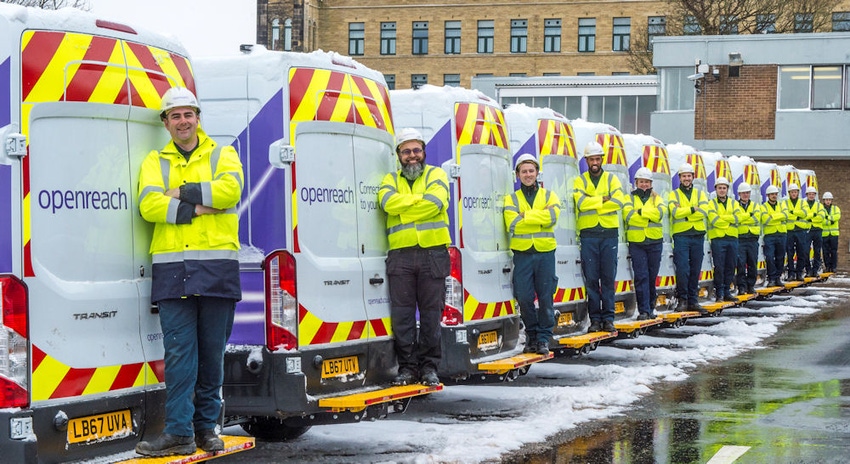BT's networks unit Openreach has warned suppliers that its cost-cutting efforts will impact its long-term spending plans.
November 24, 2022

BT’s networks unit Openreach has warned suppliers that its cost-cutting efforts will impact its long-term spending plans.
Despite the uncertainty this will inevitably create, the UK incumbent maintains that its FTTH deployment remains on track.
The Financial Times reported (paywall) on Wednesday that it has seen a letter addressed to suppliers in which Openreach said it intends to build its fibre network “narrower and deeper” and “tighten the timing of investment” to a just-in-time approach, and that it won’t commit to investing on projects further than six months out.
“This will by necessity include an element of cancellation or suspension of a job you have received and/or validated,” said the letter, according to the FT. “It is clear that there will be a financial impact to you as we implement these plans.”
It comes just weeks after BT CEO Philip Jansen raised the telco’s long-term cost-cutting target to £3 billion from £2.5 billion due to inflation and rising energy prices. “We need to take additional action on our costs to maintain the cash flow needed to support our network investments,” he said at the time.
Oddly enough, despite the contents of the letter, Openreach boss Clive Selley insisted in the FT report that the adjustments won’t affect his target of deploying fibre to 25 million premises by 2026. The network, which is rolling out at a rate of 4 million premises per year, has already passed 9 million, and Openreach is in the middle of wiring up a further 6 million. The cutbacks will mainly affect near-term work on surveys and estimates for future deployments beyond those 15 million, Selley said.
It seems a bit contradictory to say that long-term targets remain unchanged while at the same time conceding that your company won’t commit to spending money on certain projects taking place further than six months down the line. You would assume that either it can predict what will happen in the future or it can’t; not both.
Openreach can’t possibly know the full extent of the knock-on effects to suppliers either. Contractors that may have been heavily reliant on the Openreach revenue pipeline may now have to hit pause on their own long-term plans, which, depending how healthy they are financially, could have a detrimental effect on their ability to hit KPIs. By the time Openreach is ready to start surveying and building beyond that footprint of 15 million, their roster of suppliers might not be in a position to deliver straight away.
The development comes shortly after Vodafone CEO Nick Read announced his company needs to save at least €1 billion by fiscal 2026. Similarly to BT’s Jansen, he blamed rising inflation and high energy costs for the decision. In addition to saving money, Vodafone also plans to increase prices and reduce promotional discounts.
With two of the country’s biggest telcos feeling the pinch – and making plans to share that pain with their suppliers and customers – the economic outlook for the sector is starting to look a little gloomy.
Get the latest news straight to your inbox. Register for the Telecoms.com newsletter here.
About the Author(s)
You May Also Like








.png?width=300&auto=webp&quality=80&disable=upscale)


_1.jpg?width=300&auto=webp&quality=80&disable=upscale)


.png?width=800&auto=webp&quality=80&disable=upscale)